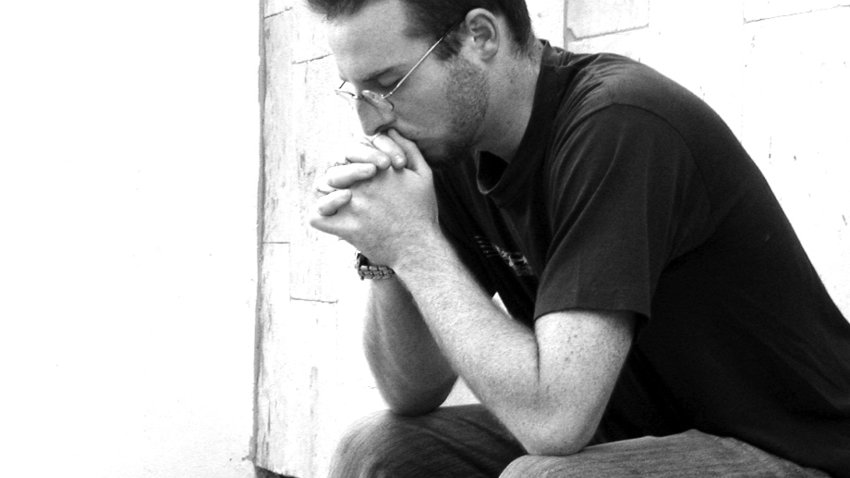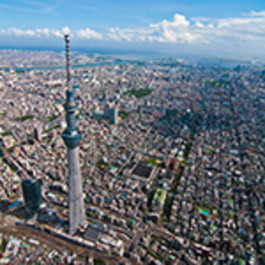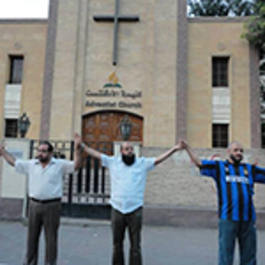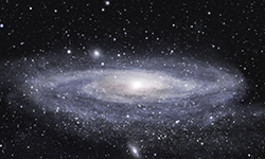You could certainly draw that conclusion, given the findings released this week in the journal Proceedings of the National Academy of Science. Astronomers with data from NASA have for the first time calculated that our Milky Way galaxy “is teeming with billions of planets that are about the size of Earth, [that] orbit stars just like our sun, and exist in the Goldilocks zone—not too hot and not too cold for life” (South Bend Tribune 11-5-13). They have calculated that out of the 200 billion stars in the Milky Way, 40-50 billion of them are like our sun. Of those sun-like stars, scientists estimate there are at least 8.8 billion of them with at least one Earth-size planet in orbit. Thus astronomers conclude there may be up to 11 billion planets able to sustain life like ours in this single galaxy! “Geoffrey Marcy, a professor of astronomy at Berkeley, extrapolated the findings across the open void of space, adding: ‘With tens of billions of Earth-like planets in each galaxy [i.e., not just in our own galaxy], our entire universe must contain billions of billions of Earth-like planets” (http://www.theregister.co.uk/2013/11/04/kepler_earth_like_planets_habitable/). Billions of billions? Please note, however, that while there may indeed by eleven billion other planets able to sustain life in the Milky Way, astronomers are not yet suggesting they have found life on any of these potential cousins of Earth. And yet it would no longer be so farfetched to suggest that we are not alone in our galaxy—there may very well be other intelligent (more intelligent?) life forms out there. In fact the nearest sun-like star with an earth-size planet is only about 12 light years away and can be seen with the naked eye at night—leading one British commentator to quip—they’re probably getting our TV programming from 2001 (perish the thought)! The ancient book of Job opens with a scene from the divine headquarters of the universe: “Now there was a day when the sons of God [“heavenly beings” NRSV] came to present themselves before the LORD” (Job 1:6). Is it so implausible to find in this ancient line the suggestion that there are other inhabited planets in God’s vast universe, and that here Job describes representatives of these Earth-like planets assembling in the throne room of the Creator? Such a notion is not quite as farfetched as it would have been a few weeks ago, is it? No wonder The Great Controversy observes: “God’s government included not only the inhabitants of heaven, but of all the worlds that He had created” (497). Thus, if we’re not alone and there are intelligent beings sharing our home galaxy with us, can you imagine the vested interest they have in the cosmic struggle between Light (Christ) and darkness (Satan) for the allegiance of this planet? If only one of the Shepherd’s sheep is lost, imagine the intense concern of the ninety-nine others. No wonder the story of Calvary—the glorious narrative of the Creator Himself incarnating into our human family to rescue Earth from the savage dominion of the fallen rebel Satan—will become “the science and song” of the universe one day when the enemy of all life is eradicated. “Tens of billions” of other planets? Can you imagine the Hallelujah chorus when the Family is reunited at His nail-scarred feet!
Pastors' Blog
By Pioneer Pastors

For ninety days this summer this campus and congregation claimed God’s promise, “I will do a new thing. . . . I will pour water on those who are thirsty and floods on the dry ground; I will pour My Spirit on your descendants, and My blessing on your offspring” (Isaiah 43:19/44:3). And then at the end of the summer, we drew a large circle in the sand, stepped into that circle together and declared to God that we would not leave this circle until He fulfills His promise to send rain. Did He? Has He? I am firmly convicted that in fact He has already begun to answer our collective prayers. How else shall we explain the overwhelming response of this campus and community to the preaching/teaching of David Asscherick last week? Except for NET98, we have never seen the sanctuary so filled every evening of the week. Last Friday night there were so many eager students and seekers in attendance, that not only our sanctuary and balcony were filled, but so was our youth chapel, which then spilled over into our earliteen loft as well. Everybody crowded into this church to listen to a series, “This Is My Church?” A series title that ended with a question mark, but a series on campus that ended the same sentence with an exclamation mark! “I will do a new thing,” God has promised. And I am convinced that what we experienced on this campus last week was a divine down-payment on that promise. “I will pour My Spirit on those who are thirsty.” And by the hundreds the thirsty showed up each evening. And when it was over, 58 individuals made the decision to follow Jesus in baptism—hundreds of others renewed their commitment to Christ and pledged their lives in covenant relationship with Him for the rest of life’s journey. But I believe last week was only a down-payment. Which means there is more to come! You and I can be sure of that. More of the outpouring of the Holy Spirit, more of decisions for Christ and baptism, more—many, many more—of lives now willing to place their all on the line (or the altar) for the call of Jesus to “go into all the world” on His behalf. Many, I believe, will trace their soon-to-be-made decision to become a Kingdom missionary (in this land or abroad) to their covenant with Christ last week. Which is why our autumn worship and pulpit series here at Pioneer takes a sudden and unplanned turn today. “Don’t Cry but Do” will connect our worshiping hearts with the passion of the God whose bouquet is now in the center of our table (what’s that “bouquet?”—listen to the recordings of David Asscherick’s presentations that will be made available—details for acquiring those recordings will be announced in our worship bulletin). And that is why, in the words of Lord Admiral Nelson in the Battle of Trafalgar, “We have only begun to fight!” Meaning, we must not diminish our prayers for the fulfillment of God’s Isaiah promise even for a moment. Rather, we must pray even more now. Now that we have seen that indeed our God is able to mightily answer the prayers of His thirsty children. After all, isn’t it also His promise: “He who has begun a good work in you will bring it to completion by the Day of Christ Jesus” (Philippians 1:6). Then let us pray on!
I’ve been amazed at the quality and depth of the questions that have been texted in each evening for Q & A with David Asscherick this week. True, there were the frivolous and trite ones—“How fast does David run a 5K?” “Can you have a class for your sound effects?” “What is your tattoo of?” etc. But the vast majority of questions that Pastor Rodlie and I sorted through in real time were earnest, thought-filled and even challenging ones: “Doesn’t this self-disclosure of God and this internal, personal knowledge of God’s reality become a sort of fideism [a school of thought that faith is, in some sense, independent of reason or even adversarial to reason]?” Think that one through. Here’s another: “Dawkins would reply to your question about the plane [the Air France crash at Toronto airport that prompted motorists to stop, race across the field and risk their lives to save the trapped passengers] with an explanation of the herd instinct [a tenet of psychology describing the inborn tendency to associate with others and follow the group’s behavior]. What explanation do we have for the herd instinct?” Hmmmm. “Are those denying God merely denying their false perceptions of Him?” Good question. “I believe all u have said…But I want to [know] isn’t Darwin correct? Isn’t the essence of our existence selfishness? i.e. Born in sin shaped in iniquity?” And one more: “I know that [if] I had the capacity to intervene in the holocaust I would have. What is God’s excuse?” Q & A with God—do you suppose He minds? Some time ago I came to the conclusion that the highest value in this universe—the highest value God Himself values—is freedom of choice. Higher even than love is the God-given, God-guaranteed capacity for free choice—for there would be, could be no love without the capacity to choose. I.e., love—in order for it be love—must not only give you the right to say YES; it must also give you the right to say NO. You have the freedom to choose. Thus, this capacity of free choice necessitates a universe where reality (and administration) can be questioned, challenged, even argued. God wasn’t describing philosophical Q & A sessions, to be sure—but Isaiah’s rendition of God’s offer deserves repeating in this context: “‘Come now, and let us reason together,’ says the LORD. ‘Though your sins be as scarlet, they shall be as white as snow’” (Isaiah 1:18). “Let us reason together,” or as the NIV renders it, “Let us settle the matter.” But this divine penchant for reason and reasoning? Why would the infinite God be willing to be this vulnerable and open Himself up to questioning by finite minds likes yours and mine? Because Love’s highest value is free choice, and there can be no free choice if the capacity to question, to challenge is removed. In short, God could not be the God He declares Himself to be—a Being who engages His entire creation through self-sacrificing love—were He to outlaw Q & A in His universe domain. So the next time a God question wells up inside of you, or a friend vehemently challenges your own faith or belief(s), remember that that very question represents the free choice Christ died to defend and preserve—the freedom to say YES or NO to the Eternal. That so many would choose to say NO is the measure of the value God still places in our Q & A with Him.

How about a break from the inane kabuki theater that Washington politics has turned out to be? Besides, by the time you read this there is hope that some sort of political compromise will have been reached to deal decisively and realistically with the government shut down and debt ceiling limit. Consider instead this report from the engineering company Boston Dynamics. This is the company that invented the Cheetah, a quadrupedal robot able to run on a treadmill at over 28 mph (faster than Husain Bolt’s top speed of 27.78 mph!). A few days ago they unveiled their new creation, a robotic piece of machinery dubbed the Wildcat. While not as fast the Cheetah, this engineering marvel (watch a video of it in action: http://rt.com/usa/running-war-robot-darpa-754/) is able to rise, turn and run up to 16 mph on flat ground. Charles Osgood, in his syndicated daily radio column, The Osgood Report, explained this week that the new Wildcat advances the possibility of robotic machines fighting this nation’s future wars. What a happy thought! Instead of humans gunning and bombing each other to death, opposing armies could send their robots into action and let the outcome be determined by the best engineers. Scientists are warning, however, that such potential robot wars introduce the possibility of the computer brain one day outsmarting its human creators and turning on the human race. So much for a cheerful paradigm shift in fighting history. The only paradigm shift Holy Scripture predicts in the history of war is the eventual eradication of war from both this planet and this universe. After all, heaven itself was plunged into cosmic battle: “And there was war in heaven” (Revelation 12:7). A civil war raging still and still called “the great controversy.” No robots in this internecine fight to the death. Instead the brilliant minds of intelligent life forms that include the once celebrated but now fallen human race. And it is the latter that is this war’s quest—a desperate battle for the loyalty of every earth child. Which is why the Creator and King of the universe Himself has plunged into this deadly conflict between Light and darkness. “For God so loved the [fallen and wounded of this] world that He gave His only Son” (John 3:16). And the stunning news is that He wins in the end! Not by a hair or through a negotiated truce—the predicted divine outcome to this cosmic rebellion is that God wins—totally, decisively, eternally. And then—and I love this line—“they shall beat their swords into plowshares, and their spears into pruning hooks; nation shall not lift up sword against nation, neither shall they learn war anymore” (Isaiah 2:4). No more war—not in Washington, not in our souls, not on earth, nowhere in the universe. The old spiritual is right: “Ain’t goin’ to study war no more.” No more war—the promise of Calvary—to which every battle fatigued heart can surely breath: Hallelujah and Amen.

They say the young Pakistani sixteen year old, Malala Yousafzai, has an inside track to the Nobel Peace Prize this year. We’ll know in a few days. If she wins this much heralded prize, she will become the youngest recipient in its illustrious history. And why not? A year ago today Malala, an outspoken public advocate of the value and importance of education for young women (a notion radically opposed by the Taliban forces operating inside Pakistan), was riding home from school in the back of a small pick-up that doubled as a “school bus” for children in her town. A masked man stopped the truck, while an accomplice singled Malala out and shot her in the head. She should have and would have died were it not for the quick intervention of Pakistani doctors who performed emergency surgery on Malala. Her condition still grave, the surgeons learned that a British physician, Fiona Reynolds, happened to be in the country that day. As it turns out, Dr. Reynolds is an intensive care specialist with the Birmingham Children’s Hospital—and she recommended that Malala be flown overseas for specialized treatment. The rest is history. Today, thoroughly healed and adamantly undeterred by Taliban extremism, Malala continues—now with an international platform—to champion the right of girls and young women to full education and schooling, in Pakistan, in every village on earth. From the beginning of time our Creator Himself has championed the value and right of education for all His Earth children. “‘Gather the people to Me, and I will let them hear My words, that they may learn to fear Me all the days they live on the earth, and that they may teach their children’” (Deuteronomy 4:10). And His vision is no small one: “God’s purpose for the children growing up beside our hearths is wider, deeper, higher, than our restricted vision has comprehended. From the humblest lot those whom He has seen faithful have in time past been called to witness for Him in the world’s highest places. And many a [child] of today, growing up as did Daniel in his Judean home, studying God’s word and His works, and learning the lessons of faithful service, will yet stand in legislative assemblies, in halls of justice, or in royal courts, as a witness for the King of kings. . . . Millions upon millions have never so much as heard of God or of His love revealed in Christ. It is their right to receive this knowledge. They have an equal claim with us in the Saviour’s mercy. And it rests with us who have received the knowledge, with our children to whom we may impart it, to answer their cry. To every household and every school, to every parent, teacher, and child upon whom has shone the light of the gospel, comes at this crisis the question put to Esther the queen at that momentous crisis in Israel’s history, ‘Who knoweth whether thou art come to the kingdom for such a time as this?’ Esther 4:14” (Education 262, 263). The vision of the divine Teacher to teach the children to reach the world—what could be more radical than that? Malala is on the right path. Shouldn’t those upon whom the light of God has shined so brightly be on that same path, too?

It’s not like we haven’t been here before. Those who can remember back to 1995 recall that the government was shut down in November that year by our perennial two-party squabble. The reason I remember is because I happened to be in Honolulu for a prayer conference, when the morning news announced that the U.S. government had entered a financial stoppage of sorts. But the world didn’t end. A major difference this time for this nation, and for the world beyond this nation, is that this government shut-down is days away from a major debt-ceiling debate in the same Congress that is now stalemated. If the two parties continue their refusal to compromise and the U.S. debt ceiling is not raised, the Treasury will theoretically be without funds (perhaps by October 17), forcing the U.S. government to begin defaulting on its ever-due debt payments to nations that have purchased portions of our national debt (China, Japan, et al). It all sounds terribly complicated, and the easiest way to deal with it is to simply dismiss it all as the game of political “chicken” or brinkmanship—but the truth is that the global economy is so jittery and unstable now that a major default from the world’s largest economy could eventually result in seismic economic tremors the world over. And what would happen next is the stuff of doomsayers. The mission of this Fourth Watch blog is to keep a prayerful watch on the unfolding events of this nation and planet. Why? Because the quotation my blogger friend Herb Douglas cites at the end of every blog (“Red Alert”) is strikingly pertinent: “Those who place themselves under God’s control, to be led and guided by Him, will catch the steady trend of events ordained by Him to take place” (Review and Herald 8-5-1902). Which simply means that for those of us who seek to heed Jesus’ admonition—“When you see these things happening, you know that the kingdom of God is near” (Luke 21:31)—keeping a watchful, prayerful eye on local, national and global developments is the better part of prudence. How can an apocalyptic movement like this one afford to do anything else? But watching and praying are not enough. The compelling national and ecclesiastical needs of Japan (where I just spent two weeks), as well as the “steady trend” of unraveling developments in this nation, are a clarion call for the church to act. How? The political process hardly needs the church to dictate a solution to the government. The towering need of society here and abroad is, as Jesus prayed to the Father on the eve of His own death, “That they may know You, the only true God, and Jesus Christ whom You have sent” (John 17:3). For that reason we’ve invited my friend David Asscherick to spend a few days on campus (October 18-26), seeking to connect with those who do not know God. Because if knowing Him is life’s greatest purpose, then helping others come to know Him is life’s greatest mission and greatest joy. So won’t you please help us help Him by extending an invitation to those who need Him now? Too much is at stake.

Our Tokyo 13 mission completed, yesterday Karen and I were two thirds of the way up the world’s tallest tower, the Tokyo Skytree. At 634 meters (2080 feet) the Skytree is only exceeded by Mt Fuji in the hazy distance. The highest point visitors are permitted to ascend (by an elevator that travels at 10 meters/second) is 451.2 meters (1480 feet). From our glassed in vantage point we could look down on the thirteen million people that live within Tokyo’s immediate city limits—but beyond them as far as the eye can see is the megapolis that makes Tokyo and vicinity the largest urban sprawl on the planet (37 million people). Towering glass and steel corporate offices, surrounded by tiny two-story Ma-and-Pa stores with their cramped upstairs residences, intersected by freeways and alleyways, the criss-cross of mass transit (emphasis on the mass), in the midst of which is the thick green folliage of the Imperial Palace where live an emperor and empress—this is Tokyo, with nearly one out of every three people in Japan (and one out of every 189 people on earth) living beneath the Skytree’s gaze. But what is the God’s-eye view? “For the eyes of the LORD run to and fro throughout the whole earth” (2 Chronicles 16:9). Beyond Tokyo, as His eye sweeps over Osaka and Seoul and Beijing and Singapore and Perth and Calcutta and Istanbul and Soweto and Nairobi and Moscow and Prague and London and Sao Paulo and Mexico City and Toronto and New York and Houston and Santa Fe and Seattle and Benton Harbor, beyond “the smoke of a thousand villages—villages whose people are without Christ, without God, and without hope in the world” (Robert Moffat)—what is His God’s-eye view of this civilization? When He gazes through the mortar and mud, the steel and glass, the tin and cardboard behind which are huddled the masses of earth, what does God see? For “the eyes of the LORD are in every place, keeping watch on the evil and the good” (Proverbs 15:3). We see a world separated by its radical diversities, segregated by its racial/socio-economic/geographic divides. But the clearest and most penetrating vision belongs to the God atop the cross who still so loves the world (John 3:16), who still these millennia later sends His friends and followers into it, all of it (Matthew 28:19). The truth is God stills sends missionaries—student missionaries, lifelong missionaries, short-term missionaries, volunteer missionaries—to the furthest reaches of civilization. The crying needs we witnessed in the Land of the Rising Sun (where 1/100 of 1% are members of our community of faith) have convinced me that the day of missionaries is hardly past. In fact I believe the day of missionaries has a new dawning for this generation at this critical time. “And I heard the voice of the Lord saying, ‘Whom shall I send, and who will go for us?’ Then I said, ‘Here I am! Send me’” (Isaiah 6:8, 9). Today when you overhear His voice asking that very same question, I hope the Spirit of God will embolden you to make that very same reply.

There is a crisis quietly unfolding far away from the headlines of Syria’s chemical attacks, North Korea’s erratic leadership, California’s raging wild fires, and this nation’s economic unraveling. The crisis concerns the land of my birth, the Land of the Rising Sun, Japan. While the international news media are focused on hot spots elsewhere, the sobering reality is that Japan has simply been unable to recover from the devastating earthquake and tsunami on March 11, 2011. It is reported that thousands of those who survived but whose homes did not are still living in emergency shelters or housing. The Fukushima nuclear plant continues to dangerously leak radioactive water into the surrounding land and sea. And “all the king’s horses and all the king’s men” seem unable to staunch the national hemorrhage. The church in Japan is caught in the clutches of the national crisis. While the church in China and South Korea continues to explode with numerical growth, the church in Japan enjoys no such success. For they are tasked with reaching a society steeped in Shinto belief that Japan is the country of the gods and her inhabitants are the descendants of the gods. Thus what need do they have for what they consider to be inferior belief systems or ideologies. If you are descended from the gods, what need is there for a Savior? Christianity as a consequence is a marginalized religion at best, with less than 1% of the 128 million adhering to faith in Christ. Every morning Seventh-day Adventists in Japan (less than 15,000 members or around 1/100 of 1% of the populace) awaken to that debilitating reality. And so when the leaders of the church in Japan wrote and asked if I would come and conduct a series of evangelistic meetings for Tokyo 13 (as they are calling the emphasis), I knew immediately that of course I must go. For not only was I born there—I spent the first fourteen years of my life living there, the son of missionary parents. I speak the language (terribly rusty now, I’m afraid). I am a child of that land. In a few days I will fly across the Pacific to Tokyo. And I am earnestly appealing to you for your intercessory prayer cover and support. All summer long we have been claiming God’s promise, “I will do a new thing. . . . I will pour water on the thirsty, and My Spirit on your descendants” (Isaiah 43:19/44:3). But all summer long I have prayed this promise not only for this campus but also for that country. It is clear for both sides of the Pacific that our hope of revival lies solely in the resurrecting, recreating, reigniting power of Christ. Only the Spirit of God can penetrate the heart and soul of Japan and the heart and soul of this campus. Hence we must pray with “shameless audacity” (Luke 11:8 NIV) to the Savior of the world. But we must also act on our prayers. And so I go to Japan. Our weeklong series is entitled, “The Hope of the Rising Sun.” Because that is Japan’s only hope—that the “Sun of Righteousness” promised in Malachi 4:2 “will rise with healing in His rays” over that proud but desperately needy nation. And when Christ rises over Japan—as I believe He will one day—then at last she will truly become the Land of the Rising Sun. And therein lies our hope.

For days now America has listened and relistened to the fifty year old black and white video rendition of Martin Luther King Jr’s “I have a dream” impromptu homily on the steps of the Lincoln Memorial. As the culmination of that peaceful march on Washington in protest over the segregation and inequality that Negro Americans were suffering in this “land of the free” five decades ago, King stood to speak. But the preacher struggled with a speech that had been “drafted by too many hands late the previous night.” Mahalia Jackson, the renown Black soloist, was standing somewhere behind him and sensed King’s struggle. “Tell ‘em about the dream, Martin,” she called out. And with that his reigned in spirit soared into “speaking words of American scripture, words as essential to the nation’s destiny in their way as those of Abraham Lincoln, before whose memorial King stood” (Jon Meacham, TIME, August 26, 2013). Countless bloggers and talking heads have opined over whether or not in the past half century Martin Luther King Jr’s dream in fact has come true. But I leave the celebration of racial advances and the decrial of racial division to them. Instead I wonder aloud if in the promise of God we have been claiming this summer—“I will do a new thing. . . . I will pour water on those who are thirsty and My Spirit on your descendants” (Isaiah 43:19/44:3)—there is embedded in fact a divine dream for a radical equality within the community of faith. Could it be that in our petitioning of heaven for this “new thing,” we are opening up our own hearts and schools and congregations to the Holy Spirit’s tearing down the walls that have grown up among us? Racial walls, to be sure—but gender walls, socio-economic walls, theological walls, emotional walls as well? Could it be that God Himself dreams of a people on earth so united in and by His relentless love that they actually, physically portray the “as We are one” unity of the Trinity that Jesus prayed for (John 17:22)? This I know. Joel 2:28, 29 makes it abundantly clear that before the “great day of the Lord,” there will be such an outpouring of God’s Spirit “on all flesh” that the walls of gender (“your sons and your daughters”) and age (“your old men and young men”) and class (“menservants and maidservants”) will crumble. God has prophesied the obliteration of inequality amongst His people before the return of Christ. So we must not abandon our prayers for God’s “new thing.” But beyond praying, we must also work tirelessly with the Spirit of God for the fulfillment of His dream of equality—in this nation, in this world, in this university and in this church. Praying without working to answer our own prayers ensures that the dream remains but a dream. It will only be fulfilled in the lives of those already working for it.

The news bulletins out of Syria this week have cast a desperate pall over the already bleak Middle East. Observers on the ground in Damascus reported that the Syrian government launched a major WMD (weapons of mass destruction) attack on its own hapless citizens in the suburbs of that ancient city. Early rumors placed the nerve gas death toll at over 1300 victims. The Syrian government has denied the charges, with the insinuation that rebel forces themselves instigated a self-inflicted strike in order to arouse global sympathy for their plight. Who can say? The political situation in Egypt is hardly much better. Muslim Brotherhood loyalists to ousted President Morsi have engaged in street battles with armed soldiers of the military coup that toppled the democratically elected government of Egypt. The death toll is still climbing. Whatever happened to the much heralded Arab Spring of two years ago? Yemen, Iran, Iraq, Syria, Egypt—is there no resolution for this desert turmoil? And in the cross-fire, what of the fledgling Seventh-day Adventist church with its small membership in that sea of Islam? Actually, the news is not all bad. In fact, on the front page of the August 18 edition of El Akbar, one of the main daily newspapers in Cairo, were two pictures of the Cairo Seventh-day Adventist church. The article reported that some 300 unruly demonstrators marched up the street past our Adventist church. But not a stone was thrown, not a flame ignited, as was the recent fate of other church premises. Why? The two front page photographs are of a group of bearded Muslim men, who with locked arms, are surrounding the church, preventing it from destruction. Muslim friends who stepped forward in that crisis—as one church official noted, “It is these kinds of people that are the hope of Egypt, and we are grateful to them.” “I will do a new thing” is the promise of the Almighty enthroned above this earth. If ever this civilization needed the intervention of its Creator and Redeemer, it couldn’t be more needy than right now, could it? All summer long we have been claiming God’s promise in Isaiah 43:19/44:3 to “do a new thing” by pouring His Spirit on His people. The recent newspaper front page in Cairo is a reminder that the friends of God are all over the earth, in every communion and every community. Which in turn must become a reminder to us here at Andrews University that the “new thing” we have been calling upon God for isn’t only for us—it is truly His promise for all. How relentless is God’s love that longs to rescue and save as many of His earth children as He can! After all, those two newspaper photographs—the object of God’s compassion isn’t the building in the pictures, is it? The object of God’s love has to be those Muslim strangers who stepped forward to protect that little church. Guardian angels indeed. So pray on.
- ‹ previous
- 35 of 62
- next ›
